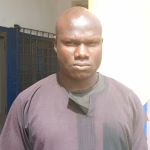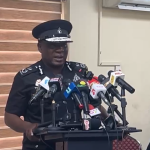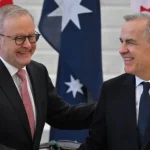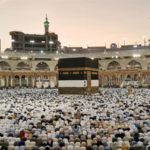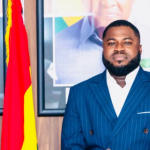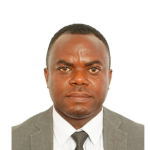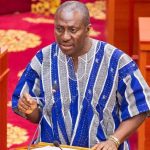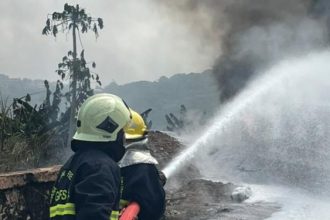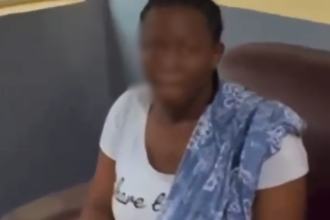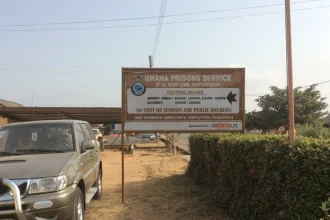President Nana Akufo-Addo has asked all basic school students to return to school on January 15 following the easing of COVID-19 restrictions.
Children in kindergarten, primary and Junior High School (JHS) in private and public institutions are expected back in school.
President Akufo-Addo is optimistic that school activities would not cause a spike in infections despite reports of second-wave infections and mutant strains of the pathogen in some countries.
Some parents have been worried about students staying home for almost a year and the President, who acted based on advice from experts, believe learning should resume.
“Our children must go to school, albeit safely, and we are satisfied that, in the current circumstances, the re-opening of our schools is safe,” he stressed.
First-year Senior High School (SHS) students are expected in school on March 10 while SHS 2 and SHS 3 students will go back on January 18.
On the other hand, students in tertiary institutions will resume on January 9.
President Akufo-Addo made the announcement in his 21st Update on Measures Taken Against the Spread of the Coronavirus.
This follows a Wednesday cabinet meeting, chaired by the President, in which the reopening of schools featured prominently.
With the COVID-19 spike raising concerns about the reopening of schools, sources within the government say the consensus had been that elaborate COVID-19 protocols be rolled out to safeguard the students against a potential spread.
According to a source at the education ministry who spoke to theghanareport.com, who asked not to be named, pre-schools’ reopening remained a major headache for the government.
Double track partially cancelled
Meanwhile, President Akufo-Addo has indicated that SHS 1 and SHS 3 students “will no longer run the double track system” because of “expansion of infrastructure at the various senior high schools, over the last three years”.
“However, the double-track system will still be applicable to SHS 2 students in schools that are employing it”.
The double track had been a controversy with the biggest opposition party criticising the move, but the government had maintained that it was a temporary measure to address increased numbers due to the implementation of the Free SHS policy.
Before their return to school, government, through the Ministry of Education and the Ghana Education Service, is expected to ensure that all institutions, public and private, are fumigated and disinfected.
Schools and institutions, with their own hospitals and clinics, are expected to be equipped with the necessary personal protective equipment and have isolation centres to deal with any positive cases.
All other schools and institutions, without their own clinics and hospitals, have been mapped to health facilities, the President noted.
There will be some level of restrictions to ensure social distancing and adherence to other protocols to prevent any virus spread.
“There will be, for now, no mass gatherings and no sporting activities. However, religious activities for students at school, under the new protocols, will be permitted. Social distancing and the wearing of face masks must become the norm in our schools.” Mr Akufo-Addo stressed.
To facilitate the safety of students, government, through the Ministry of Education, have been tasked to provide face masks, ‘Veronica’ buckets, hand sanitisers, liquid soap, rolls of tissue paper, and thermometer guns for the safe re-opening of the schools.
The Ministry of Information, the Ministry of Education, the Ghana Health Service and the Ghana Education Service have scheduled Monday, January 4, to commence a series of sensitisation campaigns to help prepare, inform and educate guardians, students and the public on further modalities associated with the re-openings.
“I want to use this address to assure all parents and guardians that government is determined to protect the lives of all students, teachers and non-teaching staff, who will be returning to school,” Mr Akufo-Addo assured.
School re-opening in other parts of the world
In other parts of the world, including South Korea, Germany, the United States and New Zeland authorities were forced to shut down schools as they confronted a second wave of the virus weeks after reopening.
In Ghana, President Nana Akufo-Addo announced the shut down of schools on March 15 as part of efforts to curtail the spread of the virus. This shifted almost all students in the country to remote learning at a time the country recorded its index case on March 12.
However, schools reopened for final year students in senior and junior high schools to take their exit examinations.
President Nana Akufo-Addo on Sunday, August 31, 2020, during his 16th COVID-19 update to Ghanaians, announced that all nursery, kindergarten, primary, Junior High School (JHS) 1 and Senior High School (SHS) 1 student and pupils would have the completion of the 2019/2020 academic year postponed to January 2021.
He subsequently postponed the reopening of tertiary schools in the country to January 2021.
However, second-year students in junior and senior high schools were allowed back in school on October 5, 2020, to complete the 2019/20 academic year.
What’s the view of experts
According to data collected by UNESCO, classrooms for nearly 1 in 5 schoolchildren globally – or 320 million – are closed as of December 1, 2020, an increase of nearly 90 million from 232 million on November 1, 2020. In contrast, the month of October saw the number of schoolchildren affected by school closures decrease nearly three-fold.
“In spite of everything we have learned about COVID-19, the role of schools in community transmission, and the steps we can take to keep children safe at school, we are moving in the wrong direction—and doing so very quickly,”
“Evidence shows that schools are not the main drivers of this pandemic. Yet, we are seeing an alarming trend whereby governments are once again closing down schools as a first recourse rather than a last resort.
“In some cases, this is being done nationwide, rather than community by community, and children are continuing to suffer the devastating impacts on their learning, mental and physical well-being and safety,” Robert Jenkins, the UNICEF Global Chief of Education, said.
According to experts, when schools close children risk losing their learning, support system, food and safety, with the most marginalized children – who are the most likely to drop out altogether – paying the heaviest price.
UNICEF fears that as millions of children remain out of their classrooms for more than nine months, many more could be re-living the upheaval.



